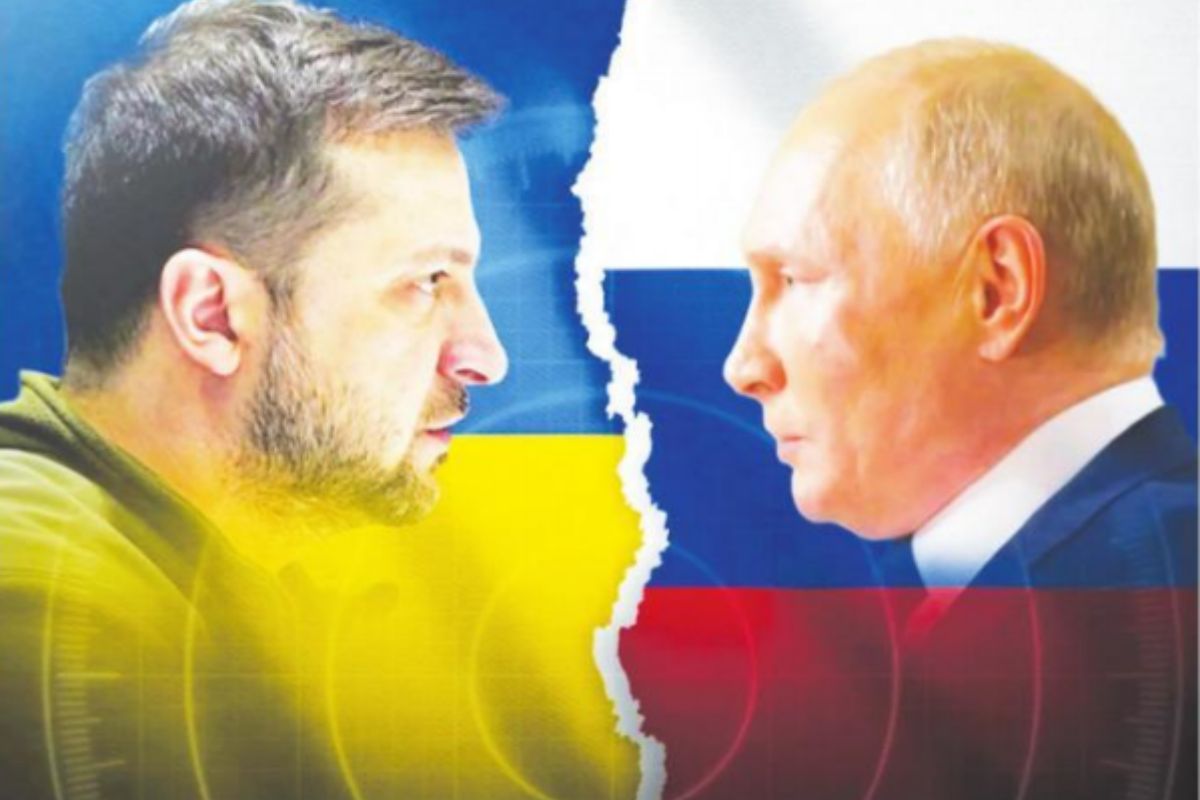Ukraine’s independence day will be bereft of any public celebrations in Kyiv because of the elevated risk of Russian attacks on the capital. Precisely six months into Vladimir Putin’s “special military operation”, the ultimate aims of the mindless aggression as well as any prospects of a ceasefire remain shrouded in the fog of war. The threat of escalation has lately been compounded by the car bomb that killed Darya Dugina, a vociferous proponent of the conquest of Ukraine, on the outskirts of Moscow last Saturday. It is widely assumed that the target was her dad, Aleksandr Dugin, an ultranationalist ‘philosopher’ with a particularly odious attitude towards Ukraine. Dugin is often referred to as “Putin’s brain” or even “Putin’s Rasputin”, although the personal connection between them isn’t clear. Dugin’s writings nonetheless offer the supposedly historic basis for Putin’s determination to contest Ukrainian sovereignty in the context of a ‘Russkiy Mir’ — Russian world — that encompasses his nation alongside Belarus and Ukraine.
There is a degree of irony in the fact that it was the elected leaders of these very Soviet republics who colluded in signing the death warrant of the USSR in 1991. Anyhow, the Russian secret service FSB concluded on Monday that Dugina was the victim of a Ukrainian conspiracy carried out by a contractor of the neo-Nazi Azov brigade, who entered Russia pretending to be a refugee, and fled to Estonia after the success of her mission. That has been dismissed by Kyiv as propaganda, although the scenario is not entirely implausible. Red flags have been raised, however, over the FSB’s sudden ability to solve murder mysteries within 36 hours, given its record of investigations that remain inconclusive for decades. A number of speculative alternatives have been aired, some of them relating to ructions within the Russian ruling elite.
Advertisement
There are plenty of possibilities, but the upshot for the moment is increased pressure for doubling down on an incredibly dumb military mission that has thus far proceeded extraordinarily poorly from Moscow’s point of view. There is some evidence that Putin, much like George W. Bush on the eve of the American-led invasion of Iraq 19 years earlier assumed that the takeover of Iraq would be a cakewalk for his forces, believed that Kyiv would crumble within days in the face of Russian might. He appears to have been comprehensively misled by the FSB and other sources. Whether they really believed what they conveyed or were too frightened to lay out the truth remains a moot point. Either way, the ‘special operation’ did not go according to plan.
Nato-reinforced Ukraine put up an unexpectedly formidable resistance, and the prowess of the Russian military machine also appears to have been overrated. Whatever Putin’s initial ambition might have been, it has had to be recalibrated. Kyiv did not crumble at the first blow. Unlike Saddam Hussein, Volodymyr Zelensky did not have to go into hiding. Recent reports in the US press suggest that Putin was misled to a considerable extent by the FSB intelligence agency and other sources he relied on. It’s unclear, but certainly possible, that his aides and subordinates were too scared to tell him the truth. And we also do not know whether he would have behaved any differently had he known better. But what the Russian military fiasco does clarify is the unlikelihood of Putin attempting anything similar in other parts of the former Soviet Union, even though Zelensky continues to insist on Putin’s determination to use Ukraine as a springboard for further incursions into Europe.
I recall being appalled some five years ago by a provocative novel titled 2017: War with Russia, not least because the potboiler was purportedly penned by Gen Sir Richard Shirreff, billed as the “former deputy allied supreme commander Europe”. From what I can recall, it envisaged Russian aggression against the Baltic states, with the Nato response flailing until British ingenuity saves the day. For all its flaws, the novel offered an intriguing insight into the Western military mindset about Russia. A similar attitude is reflected today by those who insist that an unequivocal Russian defeat is the only way out of the war raging in Ukraine, and everything must be done to prolong the conflict until Putin caves in, or is overthrown.
The latter prospects seem thoroughly unrealistic for the moment, yet the idea of a negotiated settlement that would stem the bloodshed is evidently anathema to Moscow, Kyiv, Washington and Brussels alike. Where this attitude might lead is anyone’s guess, but nothing good can come of it. One wouldn’t expect Putin to appreciate this, but other Russians would do well to remember that Russkiy Mir can mean two things in their (and the Ukrainian) language. Mir can stands for ‘world’ in the Putin-Dugin context, but it’s also the word for something far more desirable right now: ‘peace’.











